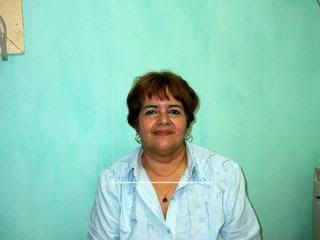Monday, February 07, 2005
Cuba Strengthens Links with Another Powerful Ally
The documents signed January 21 in Havana, have strengthened their bilateral links by signing several cooperation, trade, scientific and economic agreements. The accords were the result of the Tenth Mixed Intergovernment Commission for Economic, Scientific and Technical Cooperation, held in the Cuban capital and signed by Cuban government minister Ricardo Cabrisas and Iranian minister of Agriculture and Reconstruction, Mahmud Hojjati.
The agreement, according to sources from the Ministry for Foreign Investment and Economic Cooperation, and the Iranian embassy includes a credit of $20 million euros (about 26 million USD) for the production of food and the acquisition of equipment and means to help reduce the effects of the lengthy drought that of late has spread to all the country. Cuba alreay had a credit line from Iran which is used to finance imports for the sugar and light industries.
Minister Mahmud Hojjati as saying the credit line could be increased. Other areas included water resources, transport, construction, sports and education, said minister Cabrisas to local media. The agreement is open, he stated, to include any other branch of the economy that might be of interest for both parts.
Iran will gain, among other, greater cooperation from Cuba, technological transfer on biotechnology that will enable Iran to begin operating facilities to produce the Cuban vaccine against Hepatitis-B, as well as Interferon and other state-of-the-art pharmaceuticals.
Havana´s biological potential and Iran´s nuclear capacity are both heading the list of worries expressed but not proved by Washington on the two countries, both in the administration´s “black list”.
Analysts and international observers consider US accusations have made Cuba and Iran grow closer. Havana is interested in Iranian experience to increase farming productivity and irrigation networks, as the Islamic nation has very dry weather, but most important, it has modern power plants and long-dating experience in oil extraction and refining as well as a developed petrochemical sector.
Cuba expressed interest in auto transport and railroads. Iran set eyes on the sugar industry from previous years and bilateral cooperation marches smoothly. Several Iranian businessmen will come to Cuba for negotiations on the development of sugar cane by-products. There is also interest from both parts of exchange of experiences in the oil sector, as minister of the Basic (Heavy) Industry, Yadira Garcia, informed the press.
Iran has also received Cuban know-how since 1980 in health care, pharmaceuticals and biotechnology, and grown over the last 25 years also in the sugar industry and sports.
Hojjati advanced there would be more credits coming and an Iranian exhibition in Havana.
The financial framework, said Hojjati, would ensure the broadening of cooperation and credits according to the needs of the projects.
There will be a boost in banking relations, said Cabrisas, with the next visit to Havana of the president of the Iranian Bank for Export Development, in order to improve mechanisms to make efficient use of the credit line and speed up the execution of contracts negotiated on that basis.
It was also known that over the last few weeks, a Preferential Trade Agreement will be signed as well as the Mutual Promotion and Protection of Investment protocol. Hojjati highlighted his country and Cuba are on an expansion trend and revealed that in a few months there will be an Exhibition of Iranian products to be held in the Cuban capital.
In August, 2004, Francisco Soberon, president of the Central Bank of Cuba, held a meeting with the Iranian ambassador here who expressed his government had the intention of increasing trade flows with Havana through joint ventures to produce and invest in Cuba.
These plans could point to an increase in Iranian production of detergent and cosmetics, which reached two billion dollars in 2004, items of high demand for the hotel and tourism sector in Cuba. Iran is precisely on the verge of completing one of the world´s biggest plants in aromatic petrochemicals with an installed capacity of 4.8 million tons per year.
All these steps will help make trade grow. Trade turnover over the last years has swinged between 30 and 50 million dollars a year to make Iran an important trading partner for Cuba, while the biotech factories could help the island to launch its products in the Middle East market.
